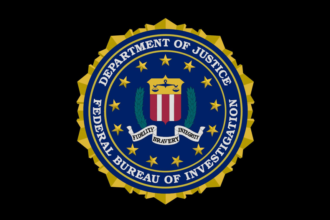The tragic FSU shootings happened at Florida State University (FSU) in Tallahassee on April 17, 2025. Twenty-year-old Phoenix Ikner of FSU started shooting on the campus close to the student union building. Two people died and six others were wounded by the gunshots. Panic brought on by the gunfire drove many students to flee for cover while police reacted quickly to the scene.
Later on, Phoenix Ikner, the suspect, was shot by police and brought to the hospital for treatment. Although the identities of the dead victims remain unknown, it was verified they were not FSU students. Law enforcement is still trying to find any possible cause for the violent deed behind the FSU shooting.
This sad incident marks yet another difficult chapter in the continuous discussion about gun violence in America, especially on college campuses. FSU officials and local law enforcement are concentrated on safeguarding the campus, supporting the community, and understanding how the events transpired, given the incident
The FSU Shooting Suspect: Who Was He?
Alleged gunman in the FSU shooting, Phoenix Ikner, is the son of seasoned Leon County Sheriff’s Department officer Jessica Ikner. Jessica had been a school resource officer, well-known for her commitment to her career and the community. She preserved her old service weapon, apparently used by her son during the incident, after the department modernized its weaponry. Jessica was a “model employee,” according to Sheriff Walt McNeil, and highly respected among law enforcement officials.
Based on his background, Phoenix Ikner seemed to have a close relationship with law enforcement having participated in the juvenile advisory council of the sheriff’s office. He had taken part in multiple police enforcement training courses, which would have helped him to get access to weapons. Notwithstanding these links to law enforcement, the use of a weapon to carry out a shooting on a university campus has sparked questions over access to weapons in the homes of law enforcement personnel.
Although Ikner had participated in political demonstrations, including a campus march opposing President Donald Trump’s inauguration in January, investigators have not indicated that the FSU shooting was politically driven. The reason behind the attack is yet unknown at this point.
The Community's Reaction to the FSU Shooting?
Faculty, staff, and FSU students were in the middle of their regular activities as the shooting started. Many students acted right away to defend themselves as word of the FSU shooting traveled. The university swiftly sent a shelter-in-place warning, telling everyone on campus to remain indoors and wait for more law enforcement direction.
An FSU student, Ava Arenado remembered the times she and her peers first heard the alert. “One of my classmates announced to the rest of the class when she received an alert on her phone,” Arenado added. Students were still not appreciating the gravity of the matter at that moment. But once the university locked down, the reality swiftly took hold.
Another student who was close to the student union during the incident, Blake Leonard, related his story. Leonard first confused the gunfire for building sounds. “In my mind, it was construction at first, until I looked behind me and saw people running from the union toward me,” he said. Leonard then heard another round of gunfire and started fleeing the area right away.
Students’ rapid response and law enforcement’s quick efforts most certainly helped to stop more losses. Still, the emotional toll the FSU tragedy took cannot be readily undone. Many students are still dealing with the shock of seeing such a dreadful thing unfold on their university.
Law enforcement answered with quickness and vigor. Arriving fast and securing the area, campus police joined local police. Shot during the encounter, the suspect was sent to the hospital. Although the matter was under control rather quickly, the FSU community will suffer long-lasting effects.
What preceded the FSU Shooting?
The inquiry into the FSU shooting is still in progress at this stage, and numerous unresolved issues exist. Authorities still have to decide a definite reason for the incident, hence, many people find themselves wondering what motivated Phoenix Ikner to start firing on university grounds.
Although Ikner had earlier participated in a demonstration against President Donald Trump’s inauguration, there is no evidence to indicate this influenced the shooting. The lack of a clear incentive has simply served to heighten the uncertainty about the attack. Law enforcement personnel are still looking into all conceivable elements that might have led to this sad event.
Access to weapons has become one of the main concerns. Phoenix Ikner had access to his mother’s service weapon, and a shotgun turned up at the site as well. For individuals in police enforcement families, especially, this raises important issues regarding the obligations of gun ownership. Should tougher policies be in place to stop people from gaining access to weapons capable of causing bloodshed?
Following the FSU shooting, these issues must be addressed by legislators and public authorities in addition to police enforcement. More gun safety rules and more sensible laws are required to stop such tragedies from happening going forward.
What Can Be Done to Prevent Future Shootings Like the FSU Shooting?
The FSU shooting is yet another example of the ongoing gun violence crisis in the United States, particularly in educational settings. After every shooting, the conversation turns to gun control and what steps can be taken to prevent such violence.
To reduce the likelihood of future shootings, several potential measures could be put in place:
- Stricter Gun Control Laws: One of the most common calls after mass shootings is for stricter gun control laws. This includes measures such as background checks, limits on the types of weapons that can be legally purchased, and mandatory waiting periods for gun buyers.
- Increased Campus Security: Universities should continue to invest in campus security, ensuring that there are adequate resources for responding to emergencies. This could include enhanced training for law enforcement officers and the installation of surveillance equipment in high-traffic areas.
- Mental Health Resources: Providing students with access to mental health services is crucial in preventing violence. Many individuals who commit violent acts show signs of mental health struggles beforehand. By offering more accessible counseling and support services, universities can help prevent violence before it happens.
- Community and Law Enforcement Collaboration: The FSU shooting highlights the need for strong communication between universities, local law enforcement, and the broader community. By working together, we can ensure that campus safety protocols are up-to-date and effective in preventing future tragedies.
Conclusion: Moving Forward After the FSU Shooting
The FSU shooting at Florida State University has left the community reeling. Two people lost their lives, and several others were injured in this tragic event. While the investigation continues, lawmakers, university officials, and the public must reflect on how we can prevent future incidents like this.
This tragedy emphasizes the need for stronger safety protocols, better mental health support, and more effective gun control policies. Moving forward, it’s essential to learn from the FSU shooting and work towards a future where students can feel safe in their learning environments. By addressing these issues head-on, we can help ensure that tragedies like this do not happen again.








